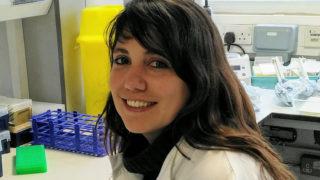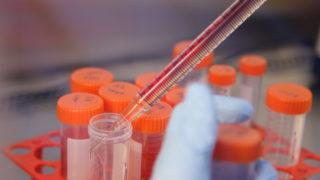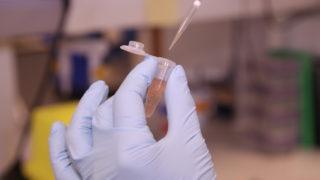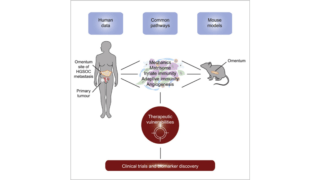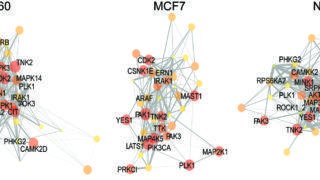New and valuable insights into familial myeloid leukaemia
3rd March 2020
Research has identified new genetic features implicated in a type of blood cancer known as familial myeloid leukaemia. The study, published in Nature Communications, offers novel insights into the biology of this inherited cancer, and provides a framework to inform how to more effectively manage at-risk individuals and patients affected by this type of blood malignancy.
Read moreImmune therapy reduces risk of recurrence in aggressive breast cancer
27th February 2020
An immune therapy for the most aggressive form of breast cancer can substantially reduce the risk of the disease returning, according to a clinical trial led by Professor Peter Schmid of Barts Cancer Institute, Queen Mary University of London.
Read moreFoot-and-mouth-disease virus could help target pancreatic cancer
12th February 2020
Researchers at Barts Cancer Institute, Queen Mary University of London, have identified a peptide, or protein fragment, taken from the foot-and-mouth-disease virus that targets another protein, called avβ6 (alpha-v-beta-6). This protein is found at high levels on the surface of the majority of pancreatic cancer cells.
Read moreWorld Cancer Day 2020
4th February 2020
This World Cancer Day, hear from our Director and some of our researchers about the importance of international collaboration in the fight against cancer.
Read moreMouse models of ovarian cancer
27th January 2020
Research led by the Barts Cancer Institute, Queen Mary University of London, has revealed that mouse models of the most common and deadly form of ovarian cancer, high-grade serous ovarian cancer, can effectively replicate the disease in humans. These models provide useful pre-clinical tools that may help to determine which patients are likely to respond to particular treatments.
Read moreProtein network rewiring in cancer
20th January 2020
Research published in Nature Biotechnology has identified new ways to analyse the complexity of the internal workings of normal cells and cancer cells. The study highlights how genetic changes rewire the biochemistry of cancer cells and may aid in identifying new drug targets specific for a patient’s disease.
Read more
